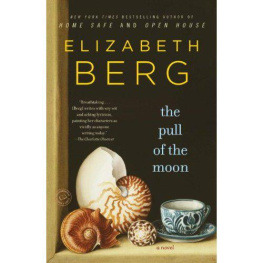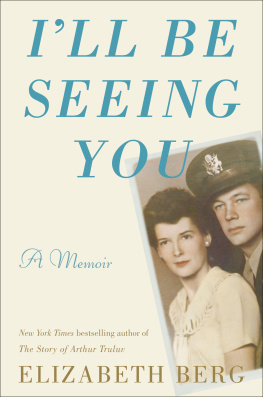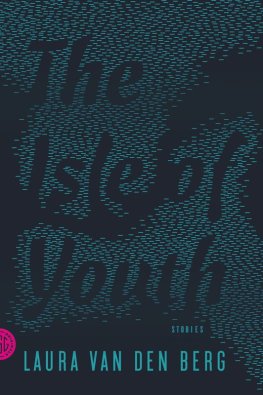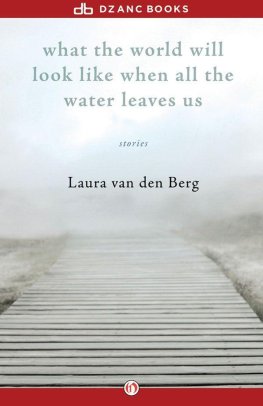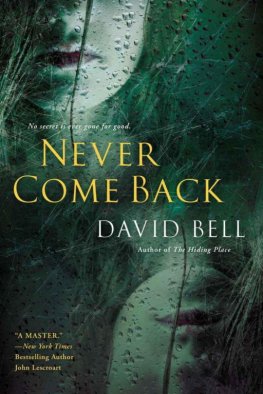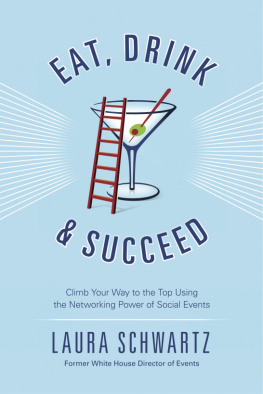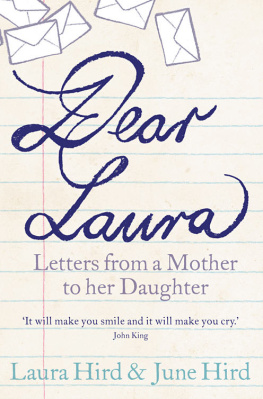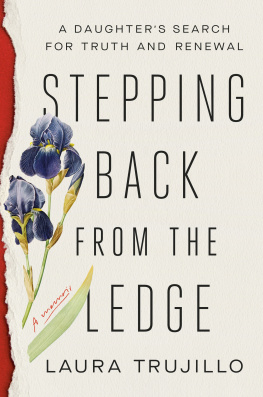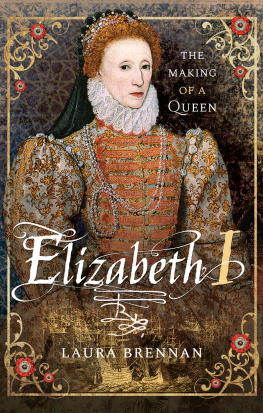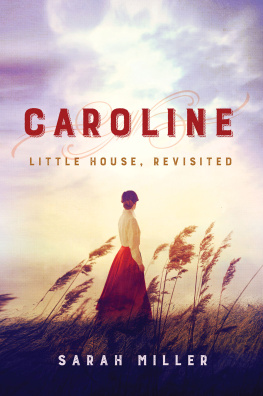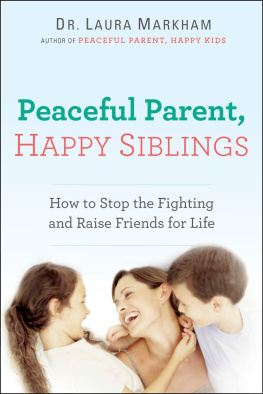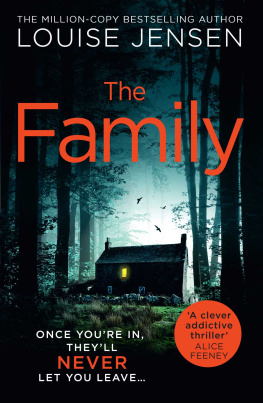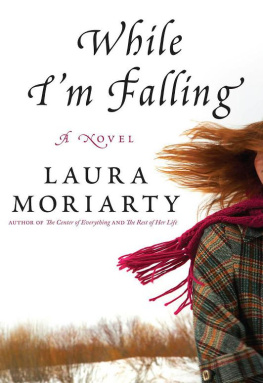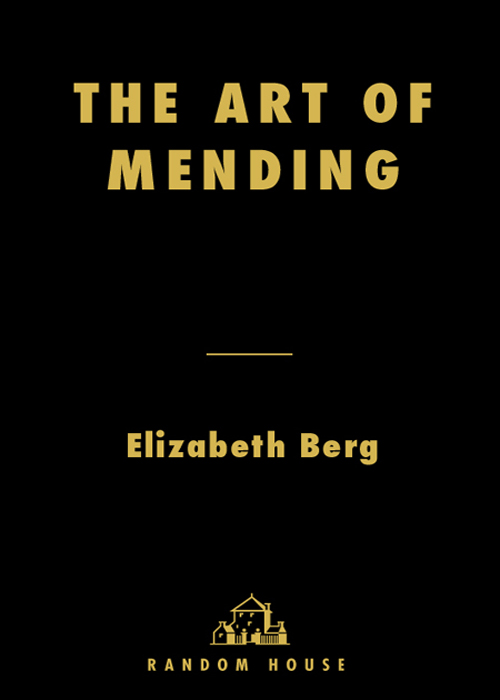
Elizabeth Berg
THE ART OF MENDING
A Novel
RANDOM HOUSE NEW YORK
CONTENTS
For those who find forgiveness
by way of the truth
and for those who find the truth
by way of forgiveness
Out beyond ideas of wrongdoing and rightdoing There is a field. Ill meet you there.
RUMI
Anyones childhood can be an act of disablement if rehearsed and replayed and squinted at in a certain light.
CAROL SHIELDS, FROM UNLESS
The foxes were having their pups....If a stranger appeared near the pens, if anything too startling or disruptive occurred, they might decide to kill them. Nobody knew whether they did this out of blind irritation, or out of roused and terrified maternal feeling.
ALICE MUNRO, FROM LIVES OF GIRLS AND WOMEN
ACKNOWLEDGMENTS
Kate Medina has believed in me unequivocally since she first read me, and she makes no secret of it. I make no secret of this: I love her, and my gratitude to her is boundless. And I think that this time, she just needs to have the whole page to herself.
It is a photograph of a staircase that I took with my Brownie camera over forty years ago. On the newel post hang three jackets. At the bottom is mine, a turquoise corduroy, with deep pockets in which I used to hide Kraft caramelsI ate them every morning on my walk to school. Over my jacket is my brother Steves: denim, with a fleece lining. And over that, my mothers stylish brown tweed car coat, an apricot-colored scarf spilling out of the pocket. Late-afternoon sun is streaming in through the window beside the stairs, illuminating the coats as well as three paper bags of groceries resting on the floor. I remember wed been to Red Owl with our mother, and Steve and I had been given our own carts to select items from our own lists. Thats why I took the picture: I was proud of the grown-up work wed done. Nearly out of frame are the rounded tips of shoes. Someone sitting on the staircase, waiting for us to see her.
THIS IS THE MINNESOTA STATE FAIR I REMEMBER MOST:
It was 1960, a Saturday morning when I was eleven years old, and I was the first one up. I had brought my mayonnaise jar stuffed with dollar bills and coins into the living room, spilled the money out onto the carpet, and then stepped over it to turn the television on to a low volume. I was going to watch The Three Stooges while I sorted my fortune.
I had just finished counting when my father came into the room. He was wearing a pair of trousers and a T-shirt and his battered old leather slippers speckled with paint the color of my bedroom walls. His blond crew cut was damp; you could see the glistening of water in it, making him look anointed, and he smelled of a citrusy aftershave. He was headed for the kitchen, where he would make coffee and bacon. This was his Saturday routine: Hed take a cup of coffee up to my mother in bed, prepared the way she liked it, with an eighth of a cup of cream and three level teaspoons of sugar. Then she would come down in one of her silk robes and make pancakes to go with the bacon.
I always hoped she would wear her peach-colored robe. It was my favorite, for its generous yardage and elaborate ruffled trim. Seeing what my mother wore was always interesting to me, whether it was the three-quarter-sleeve blouses she wore with the collars up, or the full skirts, tightly belted, or the pastel-colored cashmere sweater sets, or one of her many bathing suits, works of art designed to showcase her spectacular figure. Those suits came complete with cunning little skirts and jackets to wear over them, and broad-brimmed sun hats trimmed with fabric bands in coordinating colors. Before she was married, my mother worked for several years for an upscale department store, parading beautiful clothes before rich mens wives. She inspired more sales than any other model before or after her; everyone wanted to look like her, though of course no one did. Think Grace Kelly with red hair and green eyesthat was my mother. But it wasnt just her models training that made it so interesting to see what she wore, it was a quality inside herself. Charisma, my father said, but it seemed to me to be more than that. Other people had charisma. No one had what my mother did.
She had a large collection of jewelry, too; sometimes she allowed me to take one necklace at a time over to her bed, where I would lay it out and turn it this way and that, making it shine hard in the sunlight. Are these real diamonds? I once asked, and she said, Why have them if theyre not?
That Saturday morning, my father saw me sitting on the floor and came over to survey my neat stack of dollar bills, my coins piled high. How much have you got there? he asked.
Forty-seven dollars and eighty-three cents. I kept my smile tight to hold back my pride and stuck all my fingers between all my toes for the low pull of pleasure.
My father whistled between his teeth in a falling-bomb way I greatly admired and could not emulate despite hours of practice. He took his glasses off to polish them on the bottom of his T-shirt, then held them up for inspection: still dirtyhe never managed to get them completely clear. Howd you get that much? He resettled his glasses on his face, pushing them up snug against his nose, a gesture I associated so strongly with him that I reflexively took issue with others doing it.
I said Id been saving for a long time. I told him about the groceries Id carried in for Mrs. Riley, Mrs. Five Operations, my mother called her, for her incessant replaying of the laminectomies shed endured. Id pulled weeds for Muriel and Helen Lockerby, the two wild-haired old-lady sisters who lived around the corner. Id babysat for little Rachel Thompson every Thursday after school while her mother went to run errands, and Id occasionally walked their dog, an arthritic old German shepherd named Heintz, who seemed to me to grimace every time he lifted his leg. Id made pot holders and sold them around the neighborhoodonce, a man who answered the door in his bathrobe had bought my entire weeks inventory, which made him in my eyes equally wonderful and weird. Also, though I did not tell my father this, Id recently found a ten-dollar bill on the street, and Id made no effort whatsoever to find the owner.
My father told me to wait for just a minute and disappeared. I sat immobile, my high spirits on hold, because I thought he was going to consult with my mother about how much Id have to share with my eight-year-old sister, Caroline, who had saved little, and my seven-year-old brother, Steve, who had saved nothing at all. But thats not what happened. Instead, my father reappeared, holding his wallet. He took out a twenty-dollar bill and handed it to me. Mutely, I put it on the bottom of my pile, so no one would see. But I found out later that each of us kids had received the same gift.
I still remember what I brought home from the fair that day: a lantern that glowed Gatsby green in the dark, which I intended to take under the covers with me to read by; a bag of Tom Thumb doughnuts so redolent with the scent of cinnamon sugar it nearly levitated me; a poster of a brown mare and her foal, lying in a field full of daisies. The rest of the money Id spent on rides and on chances to win something big on the midway. Over and over I tried, and over and over the carnies at the tacky wooden booths smiled and said, Sorry. Want to try again? They knew what Id say. From the time I was quite small, I had about me a certain air of heedless determination.
When my funds were gone, I went to the blanket my parents had spread out near the edge of the fairgrounds. This was our meeting place, our refueling stationour family went to the fair once a year and stayed there all day. We kept a cooler filled with drinks and sandwiches and fruit, deli containers of various salads, Oreos and Chips Ahoy!all this though we knew we would be gorging on fair food. There were also pillows and Band-Aids, suntan lotion and insect repellent, aspirin and a couple of Ace bandages. My parents took turns manning the station, sitting in a lawn chair and amusing themselves in their own waymy mother flipping through fashion magazines or crocheting, my father doing crossword puzzles or reading one of the historical tomes he so enjoyed. He tried often to interest us kids in history, saying it was invaluable for putting things into perspective. You think somethings really great? hed say. A long time ago, there was something just as good or better. You think somethings really bad? Look in the pastyoull find something worse. Think something can never happen again? Wrong! History repeats itself
Next page

